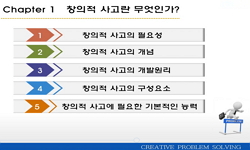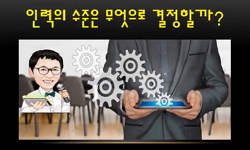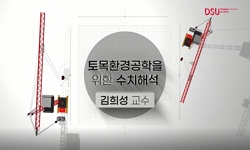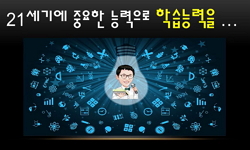본 연구의 목적은 수 관련 이야기책에 기초한 문제해결활동 경험이 유아의 수 개념 발달에 미치는 영향을 알아보는 데 있다. 이를 위하여 설정된 연구문제는 다음과 같다. 1. 수 관련 이야기...
http://chineseinput.net/에서 pinyin(병음)방식으로 중국어를 변환할 수 있습니다.
변환된 중국어를 복사하여 사용하시면 됩니다.
- 中文 을 입력하시려면 zhongwen을 입력하시고 space를누르시면됩니다.
- 北京 을 입력하시려면 beijing을 입력하시고 space를 누르시면 됩니다.
수 관련 이야기책에 기초한 문제해결활동 경험이 유아의 수 개념 발달에 미치는 영향 = Young children's development of mathematical concepts affected by the problem solving activities based on math-related storybooks
한글로보기https://www.riss.kr/link?id=T9333792
- 저자
-
발행사항
청원군 : 한국교원대학교 교육대학원, 2004
-
학위논문사항
학위논문(석사) -- 한국교원대학교 교육대학원 , 유아교육전공 , 2004. 2
-
발행연도
2004
-
작성언어
한국어
- 주제어
-
KDC
375.1 판사항(4)
-
DDC
372.7 판사항(19)
-
발행국(도시)
충청북도
-
형태사항
vi, 100p. : 삽도 ; 26cm.
-
일반주기명
권말 부록으로 '수 개념 검사도구' 등이 수록되어 있음
참고문헌: p. 61-68 - 소장기관
-
0
상세조회 -
0
다운로드
부가정보
국문 초록 (Abstract)
1. 수 관련 이야기책에 기초한 문제해결활동 경험은 유아의 수 개념 발달에 영향을 미치는가?
1-1. 수 관련 이야기책에 기초한 문제해결활동 경험은 유아의 분류개념에 영향을 미치는가?
1-2. 수 관련 이야기책에 기초한 문제해결활동 경험은 유아의 서열화개념에 영향을 미치는가?
1-3. 수 관련 이야기책에 기초한 문제해결활동 경험은 유아의 수보존과 서수개념에 영향을 미치는가?
1-4. 수 관련 이야기책에 기초한 문제해결활동 경험은 유아의 공간개념에 영향을 미치는가?
1-5. 수 관련 이야기책에 기초한 문제해결활동 경험은 유아의 측정개념에 영향을 미치는가?
1-6. 수 관련 이야기책에 기초한 문제해결활동 경험은 유아의 집합개념에 영향을 미치는가?
본 연구의 대상은 경상북도 상주시에 소재한 H초등학교 병설유치원 만 4세∼5세 유아 44명 중 성별, 연령, 언어 이해·인지력 검사 점수가 유사한 유아 34명을 각각 17명씩 실험집단과 비교집단에 배정하였다.
집단의 동질성 여부를 알아보기 위해 언어 이해·인지력 검사(서울 장애인 종합 복지관, 1992)를 사용하였고, 사전·사후 검사를 위해 Piaget식 면담용 측정도구를 연구의 도구로 사용하였다. 이 중 Piaget식 면담용 측정도구(Barron, 1979)는 선행연구(여영희, 1995; 정희달, 1990)에서 활용된 바 있으며 이를 기초로 6개의 하위 영역과 20개의 문항으로 구성한 후 사용하였다.
실험집단이 경험한 수 관련 이야기책에 기초한 문제해결활동을 위해 선정된 이야기책은 수 개념(분류, 서열, 수보존·서수, 공간, 측정, 집합)과 관련된 것이며, 문제해결활동은 16가지 활동으로 이야기책의 수 개념과 관련하여 본 연구자가 선행연구(권영례, 1997; 김숙령, 2000; 이경우 외, 1997)와 한국어린이육영회(1997)의 '수학교육을 위한 그림책 지침서'를 참고로 재구성하였다.
연구문제를 검증하기 위해 실험집단과 비교집단의 수 개념 검사의 사전·사후 검사 평균 점수의 증가분을 t검증하였다.
연구의 결과는 다음과 같다.
수 관련 이야기책에 기초한 문제해결활동 경험은 유아의 수 개념 발달에 영향을 미치는 것으로 나타났다.
수 개념 하위요인별로 살펴보면, 분류와 수보존·서수개념에서는 실험집단과 비교집단 간에 통계적으로 유의미한 차이가 나타났으나 서열, 공간, 측정, 집합 개념에서는 실험집단과 비교집단간에 통계적으로 유의미한 차이가 나타나지 않았다.
본 연구의 목적은 수 관련 이야기책에 기초한 문제해결활동 경험이 유아의 수 개념 발달에 미치는 영향을 알아보는 데 있다. 이를 위하여 설정된 연구문제는 다음과 같다.
1. 수 관련 이야기책에 기초한 문제해결활동 경험은 유아의 수 개념 발달에 영향을 미치는가?
1-1. 수 관련 이야기책에 기초한 문제해결활동 경험은 유아의 분류개념에 영향을 미치는가?
1-2. 수 관련 이야기책에 기초한 문제해결활동 경험은 유아의 서열화개념에 영향을 미치는가?
1-3. 수 관련 이야기책에 기초한 문제해결활동 경험은 유아의 수보존과 서수개념에 영향을 미치는가?
1-4. 수 관련 이야기책에 기초한 문제해결활동 경험은 유아의 공간개념에 영향을 미치는가?
1-5. 수 관련 이야기책에 기초한 문제해결활동 경험은 유아의 측정개념에 영향을 미치는가?
1-6. 수 관련 이야기책에 기초한 문제해결활동 경험은 유아의 집합개념에 영향을 미치는가?
본 연구의 대상은 경상북도 상주시에 소재한 H초등학교 병설유치원 만 4세∼5세 유아 44명 중 성별, 연령, 언어 이해·인지력 검사 점수가 유사한 유아 34명을 각각 17명씩 실험집단과 비교집단에 배정하였다.
집단의 동질성 여부를 알아보기 위해 언어 이해·인지력 검사(서울 장애인 종합 복지관, 1992)를 사용하였고, 사전·사후 검사를 위해 Piaget식 면담용 측정도구를 연구의 도구로 사용하였다. 이 중 Piaget식 면담용 측정도구(Barron, 1979)는 선행연구(여영희, 1995; 정희달, 1990)에서 활용된 바 있으며 이를 기초로 6개의 하위 영역과 20개의 문항으로 구성한 후 사용하였다.
실험집단이 경험한 수 관련 이야기책에 기초한 문제해결활동을 위해 선정된 이야기책은 수 개념(분류, 서열, 수보존·서수, 공간, 측정, 집합)과 관련된 것이며, 문제해결활동은 16가지 활동으로 이야기책의 수 개념과 관련하여 본 연구자가 선행연구(권영례, 1997; 김숙령, 2000; 이경우 외, 1997)와 한국어린이육영회(1997)의 '수학교육을 위한 그림책 지침서'를 참고로 재구성하였다.
연구문제를 검증하기 위해 실험집단과 비교집단의 수 개념 검사의 사전·사후 검사 평균 점수의 증가분을 t검증하였다.
연구의 결과는 다음과 같다.
수 관련 이야기책에 기초한 문제해결활동 경험은 유아의 수 개념 발달에 영향을 미치는 것으로 나타났다.
수 개념 하위요인별로 살펴보면, 분류와 수보존·서수개념에서는 실험집단과 비교집단 간에 통계적으로 유의미한 차이가 나타났으나 서열, 공간, 측정, 집합 개념에서는 실험집단과 비교집단간에 통계적으로 유의미한 차이가 나타나지 않았다.
다국어 초록 (Multilingual Abstract)
Research questions of this study were as follows:
1. Do the problem solving activities based on math-related storybooks affect young children's development of mathematical concepts?
1-1. Do the problem solving activities based on math-related storybooks affect young children's classification concept?
1-2. Do the problem solving activities based on math-related storybooks affect young children's seriation concept?
1-3. Do the problem solving activities based on math-related storybooks affect young children's number conservation and ordinal number concept?
1-4. Do the problem solving activities based on math-related storybooks affect young children's space concept?
1-5. Do the problem solving activities based on math-related storybooks affect young children's measurement concept?
1-6. Do the problem solving activities based on math-related storybooks affect young children's collection concept?
Subjects for this study were 34 children with similar gender, age, and scores of language comprehension and cognitive ability test, all of whom were selected among 44 four-or five-year-old children attending H kindergarten in Sangju, Kyeongbuk. Each 17 children were assigned to either experimental or comparative group.
The language comprehension and cognitive ability test (Seoul Community Rehabilitation Center, 1992) was used to test group homogeneity. As pre-and post-tests, the Piagetian Interview Test (Barron, 1979) was used, which have been used in prior researches (Yeo, 1995; Jung, 1990). The present researcher revised this test into a 20-item and six-subfactor test based on the prior researches.
The math-related storybooks selected for problem solving activities and administered to the experimental group were closely connected with mathematical concepts (classification, seriation, number conservation and ordinal number, space, measurement). The 16 problem solving activities were constructed by the present researcher with reference to the prior researches (Kwon, 1997; Kim, 2000; Lee et al, 1997) and the 'Picture Book Guidelines for Math Education' published by the Korean Association for the Fostering and Education of the New Generation (1997).
To test the research questions, t-tests were conducted on the difference scores between pre-and post-tests on mathematical concepts.
The results of the study were as follows;
First, the problem solving activities based on math-related storybooks significantly affected young children's development of mathematical concepts.
Second, in the subfactors of mathematical concepts, there were no significant effects of problem solving activities on young children's concepts of seriation, space, measurement, and collection. However, there were significant effects of problem solving activities on young children's concepts of classification and number conservation and ordinal number.
The present study was to investigate young children's development of mathematical concepts affected by the problem solving activities based on math-related storybooks. Research questions of this study were as follows: 1. Do the problem solving activ...
The present study was to investigate young children's development of mathematical concepts affected by the problem solving activities based on math-related storybooks.
Research questions of this study were as follows:
1. Do the problem solving activities based on math-related storybooks affect young children's development of mathematical concepts?
1-1. Do the problem solving activities based on math-related storybooks affect young children's classification concept?
1-2. Do the problem solving activities based on math-related storybooks affect young children's seriation concept?
1-3. Do the problem solving activities based on math-related storybooks affect young children's number conservation and ordinal number concept?
1-4. Do the problem solving activities based on math-related storybooks affect young children's space concept?
1-5. Do the problem solving activities based on math-related storybooks affect young children's measurement concept?
1-6. Do the problem solving activities based on math-related storybooks affect young children's collection concept?
Subjects for this study were 34 children with similar gender, age, and scores of language comprehension and cognitive ability test, all of whom were selected among 44 four-or five-year-old children attending H kindergarten in Sangju, Kyeongbuk. Each 17 children were assigned to either experimental or comparative group.
The language comprehension and cognitive ability test (Seoul Community Rehabilitation Center, 1992) was used to test group homogeneity. As pre-and post-tests, the Piagetian Interview Test (Barron, 1979) was used, which have been used in prior researches (Yeo, 1995; Jung, 1990). The present researcher revised this test into a 20-item and six-subfactor test based on the prior researches.
The math-related storybooks selected for problem solving activities and administered to the experimental group were closely connected with mathematical concepts (classification, seriation, number conservation and ordinal number, space, measurement). The 16 problem solving activities were constructed by the present researcher with reference to the prior researches (Kwon, 1997; Kim, 2000; Lee et al, 1997) and the 'Picture Book Guidelines for Math Education' published by the Korean Association for the Fostering and Education of the New Generation (1997).
To test the research questions, t-tests were conducted on the difference scores between pre-and post-tests on mathematical concepts.
The results of the study were as follows;
First, the problem solving activities based on math-related storybooks significantly affected young children's development of mathematical concepts.
Second, in the subfactors of mathematical concepts, there were no significant effects of problem solving activities on young children's concepts of seriation, space, measurement, and collection. However, there were significant effects of problem solving activities on young children's concepts of classification and number conservation and ordinal number.
목차 (Table of Contents)
- 목차 = ⅰ
- 논문요약 = ⅳ
- Ⅰ. 서론 = 1
- A. 연구의 필요성 및 목적 = 1
- B. 연구 문제 = 4
- 목차 = ⅰ
- 논문요약 = ⅳ
- Ⅰ. 서론 = 1
- A. 연구의 필요성 및 목적 = 1
- B. 연구 문제 = 4
- C. 용어의 정의 = 5
- D. 연구의 제한점 = 5
- Ⅱ. 이론적 배경 = 6
- A. 유아수학교육에서 문학의 가치 = 6
- B. 문제해결 = 11
- C. 유아의 수 개념 = 16
- Ⅲ. 연구 방법 = 33
- A. 연구 대상 = 33
- B. 연구 도구 = 34
- C. 연구 절차 = 36
- D. 자료의 처리 = 48
- Ⅳ. 결과 및 해석 = 49
- A. 수 관련 이야기책에 기초한 문제해결활동 경험이 유아의 수 개념 발달에 미치는 영향 = 49
- Ⅴ. 논의 및 결론 = 55
- A. 논의 = 55
- B. 결론 = 59
- C. 제언 = 59
- 참고문헌 = 61
- ABSTRACT = 69
- 부록 = 72












